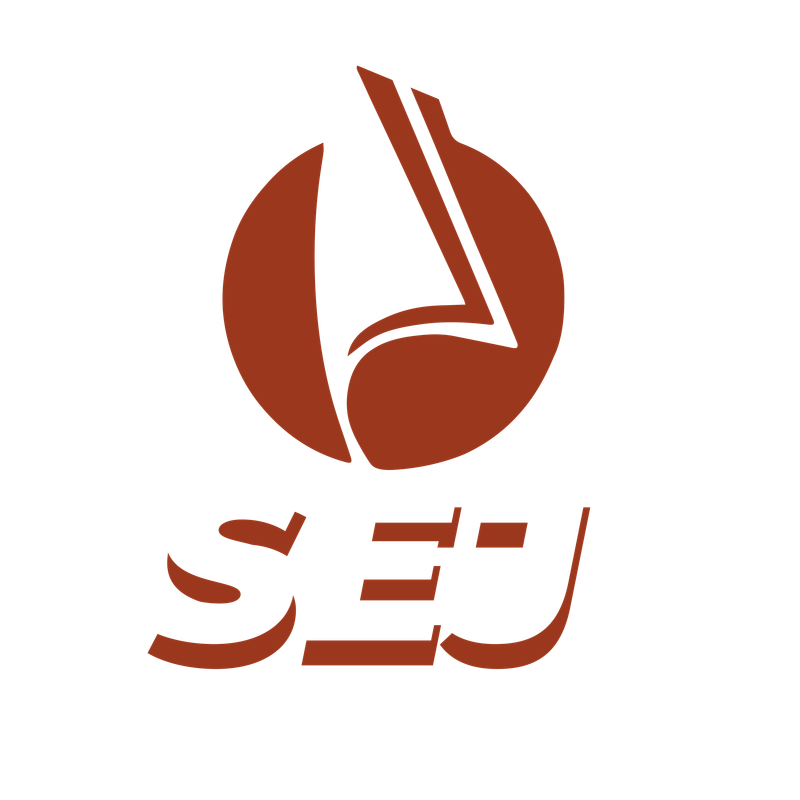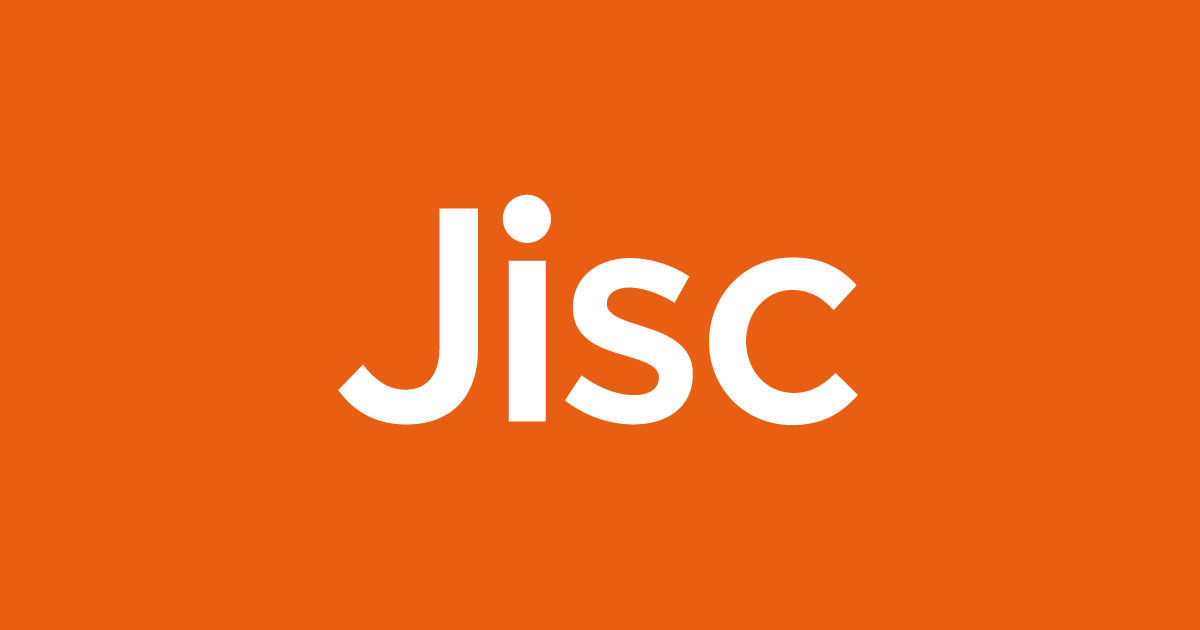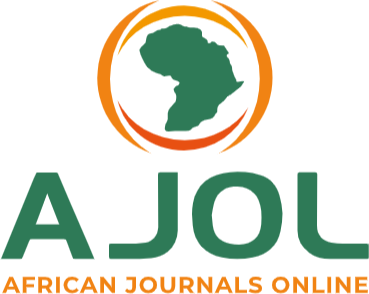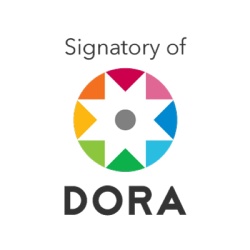Publication Ethics and Integrity Statement

Publication Ethics and Integrity Statement
SEJ Publishing Ethics and Integrity Statement
Preamble: Our Operational Commitment to Scholarly Integrity
The Social Empowerment Journal (SEJ) is built on a pledge to foster a transparent, rigorous, and ethical scholarly dialogue. We recognize that trust in our publication is earned through the consistent application of clear and fair policies.This document is the definitive guide to the ethical standards of SEJ. It is not merely a statement of principles but a description of our operational procedures. These procedures have been developed internally by the SEJ Editorial Board to govern the actions of our authors, reviewers, editors, and publisher. Although we share the core values of global organizations such as the World Association of Medical Journal Editors (WAME), and (ICMJE), the Committee on Publication Ethics (COPE), our application of these principles is unique to SEJ's mission and workflow.
Duties and Operational Responsibilities of the SEJ Editorial Team
Editorial Independence and Decision-Making Protocol:
The ultimate, unassailable control over the journal's academic content rests with the Editor-in-Chief.
Decision Process: Publication decisions are made following a structured double-blind peer-review process managed via our editorial system. A manuscript must receive at least two favorable reviews to be considered for acceptance. The final decision (Accept, Minor Revisions, Major Revisions, Reject) is documented in the editorial system with a clear justification based on the reviewers' feedback and the editor's assessment of the work's quality and relevance. The editorial board has the right to decline a paper to submission to external peer review if it is outside the journal's topic areas, is of insufficient quality to be considered by the journal referees, or has likely ethical concerns.In the event that a paper produces a single positive review and a single negative review, a paper will be passed to an independent third reviewer or handling editor whose decision will be final with regard to whether or not a paper is suitable for publication.
Insulation from External Influence: No member of the journal's publisher, sponsoring institution, or any commercial partner can influence editorial decisions. This separation is contractually guaranteed.
Confidentiality and Data Security Protocol:
Manuscript Handling: All submissions are assigned a unique manuscript ID and are handled exclusively through our secure, password-protected editorial management system. Access is restricted to the assigned editor, potential reviewers, and administrative staff on a need-to-know basis.
Double-Blind Anonymity: SEJ operates a strict double-blind peer-review model. Both the authors' and reviewers' identities are kept secret from one another. All identifying information must be removed from the manuscript file prior to review.
Ensuring Fair and Unbiased Evaluation (The SEJ Fair Play Protocol):
Objective Criteria: Manuscripts are judged solely against a documented set of criteria: originality, methodological rigor, clarity of presentation, contribution to the field, and relevance to SEJ's scope. Author demographics or affiliations are not part of the evaluation criteria.
Bias Mitigation: Our commitment to double-blind peer review is the cornerstone of our effort to mitigate potential bias related to author demographics, affiliation, or reputation. The editorial office also conducts periodic internal audits to ensure fairness.
To facilitate high quality editorial decision making, SEJ provides ongoing training to editors and reviewers about concerns related to research integrity, peer review ethics, and bias reduction. Routine internal investigations into peer review decisions by the editorial office also ensure uniformity, fairness, and compliance with the journal's ethical framework.
imeliness and Efficiency: SEJ ensures efficient editorial processing. It is also determined to complete initial peer review within six to eight weeks. When a holdup persists beyond twelve weeks, it is considered to be substantial. In this case, the handling editor should notify the Editor-in-Chief, who can also ask a paper to be transferred to a different editor to ensure that access to publication is not unnecessarily withheld from authors.
SEJ's Conflict of Interest (CoI) Management Protocol:
For Editors: All editorial staff must complete a mandatory annual CoI declaration form. They must recuse themselves from handling any manuscript if they: (a) have co-authored with the author in the last 3 years, (b) work at the same institution, or (c) have a direct financial interest in the research. The recusal is formally logged in our editorial system, and the manuscript is reassigned by the Editor-in-Chief to an independent editor.
For Submissions from Editors: Any submission by a SEJ editor or board member is flagged automatically. The entire process, from reviewer selection to final decision, is managed by an external guest editor or a designated deputy editor with no connection to the author. A public declaration of this independent handling process is published with the article.
Upholding the Integrity of the Published Record (SEJ's Post-Publication Protocol):
To address post-publication concerns, SEJ maintains a standing Integrity Committee made up of the Editor-in-Chief and two senior board members.
Process: When a concern is raised, the committee first conducts a preliminary assessment. If the concern is credible, they will contact the author for a response, following COPE's Retraction Guidelines. All correspondence is documented.
Actions: Based on the investigation, the committee will decide on the appropriate action:
Correction: For minor, unintentional errors that do not invalidate the findings.
Expression of Concern: If there is inconclusive evidence of misconduct but serious concerns remain.
Retraction: For major errors, data fabrication, falsification, or plagiarism. A detailed, non-defamatory retraction notice explaining the reasons will be published and linked to the original article.be published and linked to the original article.
It also has an open channel for comments and grievances by readers, authors, and members of the scholarly community. Such issues about content that has been published, ethics problems, or editorial behavior can be directly submitted to the editorial office and shall be treated with complete confidentiality. Such submissions are reviewed by the Integrity Committee and replied to according to COPE guidelines to facilitate a continuous improvement to the scholarly record.
Investigation of Ethical Concerns
Following an investigation, the Integrity Committee will determine the appropriate sanction based on the severity of the misconduct. Sanctions are applied on a case-by-case basis and may range from:
A letter of education to the authors in cases of genuine misunderstanding.
A formal warning regarding future conduct.
Rejection of the manuscript or a request for correction.
A temporary or permanent ban on future submissions from the responsible authors.
Notifying the authors' institution or funding bodies.
A formal retraction of the published work
Reference: COPE Retraction Guidelines
Detailed Responsibilities and Requirements for SEJ Authors
Reporting Standards and Reproducibility:
SEJ also encourages authors to adhere to established reporting guidelines relevant to their field of study (e.g., CONSORT, PRISMA). Resources like the EQUATOR Network can help identify appropriate guidelines.
Data Availability and Deposition:
In order to maximize transparency, authors should submit their data sets to trusted repositories that provide persistent identifiers such as DOIs. For Journal purposes, authors should also follow FAIR principles such that data should be discoverable, usable, interoperable, and reusable as per international best practices.
Originality and Plagiarism Screening:
Screening Process: Every submission to SEJ undergoes a mandatory plagiarism check using plagiarism detection software (e.g., Crossref Similarity Check, Turnitin, Detectia). The report is reviewed by the handling editor.
Thresholds: While there is no "magic number," a similarity score exceeding 20% (or >5% from a single source) triggers a detailed manual review. If plagiarism is confirmed, the manuscript is immediately rejected, and authors may face a submission ban of up to 3 years
To assist in evaluating originality, authors may be asked to provide copies of any related manuscripts submitted or in press at other journals.
In addition to screening for plagiarism, SEJ places specific emphasis upon integrity of reference. Writers should be able to confirm that all citations included within their manuscript are accurate, verifiable, and directly applicable to their study. Checks for false or fabricated citations within reference lists are undertaken by the editorial office. In cases discrepancies are discovered upon scrutiny, authors will be prompted to provide corrections. In incidents where verified falsified or deceitful reference is determined to be included, a paper shall be rejected. In incidents where such concerns arise after publication, a correction, expression of concern, or a retraction will be released by the journal, dependent upon egregious infraction.
Disclosure of Conflicts of Interest and Funding: Authors must complete a mandatory ICMJE-style disclosure form at submission. A summary of all declared conflicts and funding sources is published with the final article.
Use of AI and AI-Assisted Technologies:For AI, SEJ mandates complete transparency. When AI or AI-supported software is used anywhere during manuscript preparation—say language editing, figure plotting, or summarizing literature—authors should include a special subsection titled "Declaration of AI Usage." There they would indicate software used, version, what specific role it played in preparing a manuscript, as well as how they maintained veracity and originality of output. Sole responsibility for content lies with human authors. AI tools cannot be listed as authors.
Pre-registration of Studies: SEJ strongly encourages the pre-registration of all study protocols. For clinical trials, pre-registration in a WHO- or ICMJE-approved registry is mandatory for consideration. The registration number must be provided in the abstract.
SEJ's Authorship and Contributorship Policy:
Authorship Changes: Any request to add, remove, or reorder authors after submission must be sent to the Editor-in-Chief with a signed statement from all original and new authors confirming their agreement. Such changes are only permitted in exceptional circumstances.
Reference: ICMJE - Defining the Role of Authors and Contributors
. Disclosure Protocol for Conflicts of Interest and Funding:
Authors must complete a mandatory ICMJE-style disclosure form at the time of submission. This form is sent to reviewers to help them assess potential bias. A summary of all declared conflicts and funding sources is published with the final article.
. SEJ's AI and AI-Assisted Technology Policy:
Mandatory Disclosure: Using tools for generative AI (e.g., ChatGPT, Midjourney) for writing text, creating images, or analyzing data must be declared in a dedicated section titled "Declaration of AI Usage."
Specifics of Disclosure: This section must specify: (1) The name and version of the AI tool used, (2) The part of the manuscript it was used for (e.g., "language editing," "literature summary"), and (3) A brief explanation of how the authors verified the accuracy and originality of the AI-generated output.
Accountability: The authors are explicitly reminded that they are solely responsible for any errors, plagiarism, or ethical breaches in the manuscript, regardless of AI involvement. AI tools cannot be cited as an author.
Pre-registration of Studies and Clinical Trials:
SEJ strongly encourages authors to pre-register their study protocols in a recognized public registry (e.g., OSF.io, AsPredicted.org) to enhance transparency and reduce publication bias.
Mandatory for Clinical Trials: For all clinical trials, SEJ mandates pre-registration in a WHO- or ICMJE-approved registry (e.g., ClinicalTrials.gov) as a condition for consideration. The registration number needs to be included at the conclusion of the abstract for the manuscript. Operational Duties of SEJ Peer Reviewers
The SEJ Review Form:
To ensure structured and high-quality feedback, reviewers complete a standardized review form. This form prompts them to assess the manuscript on specific criteria (e.g., Originality, Methodology, Significance, Clarity) and requires them to provide constructive comments for the author and confidential comments for the editor.
. Conflict of Interest Check for Reviewers:
Before accepting a review, reviewers must answer a mandatory checklist to confirm they have no conflicts of interest. This includes confirming they have not collaborated with the authors in the past 3 years and are not in direct competition.
Upholding the Integrity of the Published Record (SEJ's Post-Publication Protocol):
SEJ has a standing Integrity Committee to investigate ethical concerns raised about published works. Following a fair investigation based on COPE guidelines, the committee will take appropriate action to correct the scholarly record.
Actions to Correct the Record: Depending on the nature and severity of the issue, actions may include:
Erratum: To correct a minor, unintentional error that does not invalidate the study's conclusions.
Expression of Concern: To alert readers when there is credible concern about a paper, but an institutional investigation is not yet complete.
Retraction: To withdraw the paper entirely if the findings are invalidated by major error or proven misconduct. A full explanation will be provided in the retraction notice.
Reference: COPE Retraction Guidelines
SEJ's Ethical Oversight and Investigation Protocol
Step-by-Step Misconduct Investigation:
SEJ follows COPE's flowcharts as our standard operating procedure.
Receipt of Allegation: A confidential file is opened.
Preliminary Assessment: The Integrity Committee assesses the evidence.
Notification to Author: If the allegation is deemed credible, the corresponding author is contacted with the specific concern and given 21 days to provide a response.
Investigation: The committee evaluates the author's response, potentially involving statistical experts or institutional research integrity officers.
Decision & Action: The committee makes a final decision and implements the necessary action (e.g., retraction, correction), informing all relevant parties.
Protocol for Research Involving Human or Animal Subjects:
Mandatory Ethics Statement: Authors must include a section titled "Ethical Approval and Informed Consent" in their manuscript.
All articles in which human participants or animals serve as subjects will have an area titled “Ethical Approval and Informed Consent.” This section should clearly indicate Institutional Review Board (IRB) or Ethics Committee name responsible for approval, and their respective approval code or date. The authors should also clearly indicate that the study was conducted in accordance with the Declaration of Helsinki for studies involving human participants, or with ARRIVE guidelines and relevant national or international regulations for studies involving animals. The statement must also include, in addition, assurance that written informed consent was obtained from all human participants, and from parents, guardians, or persons lawfully authorized to act in such capacity, in studies involving minor participants or vulnerable individuals. The authors must also indicate that all personal data and information identifying individuals were kept in strictest confidentiality and treated in accordance with relevant data protection laws. In studies involving animals, authors must also assure that experiments were carried out in accordance with commonly accepted criteria for laboratory animal care and use.
Content Requirements: This section must state: (a) the designation of the ethics committee or Institutional Review Board (IRB) in charge of approving the research project. , (b) the approval reference number, and (c) a declaration attesting to the fact that, Every human participant gave heir informed consent in line with the Helsinki Declaration. For research involving animals, compliance with guidelines like ARRIVE must be affirmed. The editorial office may request copies of the approval documents at any time.
Security-Sensitive Research (Dual-Use): SEJ is committed to the responsible publication of science. Authors and reviewers must notify the editors if a manuscript contains information that could be considered " Research that could be misused to endanger public health or security is known as "Dual-Use Research of Concern" (DURC). Such manuscripts will undergo an additional layer of ethical review by the Editor-in-Chief.
Participant Privacy: Authors must also describe the steps taken to protect participant privacy, including the anonymization of personal data before analysis and sharing. No personally identifying information (including initials or images) may be published without explicit, written consent from the individual. The editorial office may request copies of approval and consent documents at any time.
Journal Policies and Procedures
Authors retain copyright to their work published in the Social Empowerment Journal (SEJ). All articles are published under the Creative Commons Attribution-NonCommercial 4.0 International (CC BY-NC 4.0) license (http://creativecommons.org/licenses/by-nc/4.0/ ). This license allows others to download, share, and adapt the work for non-commercial purposes, provided the original work is properly cited. Authors are the copyright holders of their works. For further details on copyright and licensing, please see our Copyright and Licensing Policy page.
For perpetual access to its content once it is published, SEJ guarantees preservation of all articles in trustworthy digital archiving systems such as LOCKSS, CLOCKSS, or the PKP Preservation Network. It ensures that the scholarly record is preserved permanently should the journal be discontinued or undergoes technical disruptions.
Publication Timing and Embargo Policy:
Accepted manuscripts are typically published online as an "Article in Press." If an author's institution requires a coordinated media release (embargo), To set up a specific publication date, authors must inform the editorial office at the time of acceptance.
Appeals Policy on Editorial Decisions: Authors who believe their manuscript's rejection was unjust may submit a single appeal. The appeal must be sent via email to the Editor-in-Chief and should include a detailed rebuttal of the reviewers' and editor's comments or explain why the decision is perceived as flawed. Appeals that do not provide new information or a compelling argument will not be considered. The appeal will be evaluated by an editor not involved in the original decision, and their judgment will be final.
SEJ Publisher’s Role in Handling Unethical Publishing Behaviour
The Social Empowerment Journal (SEJ), through its publisher in close collaboration with the editorial leadership, is firmly committed to protecting the scholarly record from unethical practices.
- Responsibility for Misconduct Cases: In the event of alleged or proven scientific misconduct—such as plagiarism, fraudulent data, or unethical authorship practices—the publisher, together with the editors, will take all necessary measures to investigate and address the issue. Depending on the severity of the case, actions may include the publication of an erratum, clarification, or, in the most serious circumstances, the formal retraction of the article.
- Preventive Measures: The publisher, alongside the editorial team, actively works to identify and prevent the publication of manuscripts that involve research misconduct. Under no circumstances will SEJ encourage or knowingly permit such practices.
- Commitment to Transparency: All corrective actions, including retractions or corrections, will be issued with transparency, following internationally recognized guidelines ( COPE), to ensure the continued trust of readers, authors, and the academic community




















